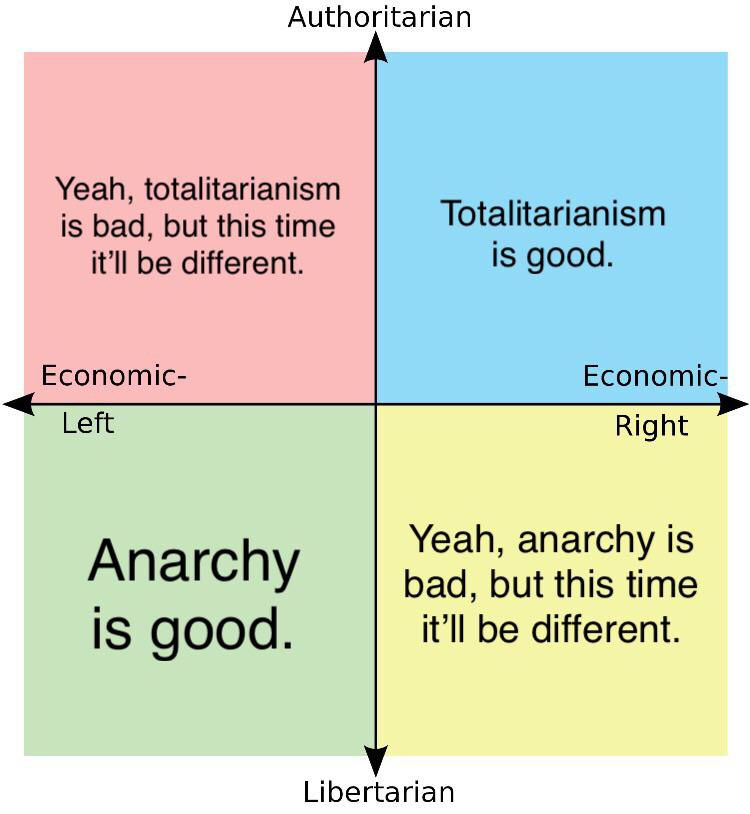Non-Human Resources
- tripping8
- Nov 3, 2023
- 6 min read
In today’s business world, where technology generally takes precedence over humanity, human resource professionals have, to a great extent, outsourced the “human” part of their titles to computer programs. When applying for jobs, more often than not, before a person even gets the chance to speak with someone at length about their background, goals, skills, etc., they’re directed to take a test of some sort.

These tests are created by personality “experts” to judge a person’s character, knowledge of duties related to a specific job, or, indirectly, to find out if you’re someone who might decide to “go postal” at some point. While the intention behind these pre-employment assessments may be to streamline the hiring process and ensure a good fit between a candidate and a company, the inherent absurdity and dehumanizing nature of these tests cannot be overlooked.

At first glance, personality assessments may seem innocuous, merely an additional hoop to jump through on the road to employment. However, upon closer examination, the implications of such tests are far more insidious. They reduce a candidate’s complex personality, experiences, and abilities into a series of checked boxes, numerical scores, or categorized personality types.
This oversimplification devalues the uniqueness of each individual and perpetuates the idea that people can be neatly categorized into a few limited archetypes. As a result, these tests often fail to capture the full scope of a person’s capabilities and potential, leading to the exclusion of highly qualified individuals who don’t fit neatly into the predefined molds.
One of the main arguments in favor of personality tests is their potential to predict a candidate’s job performance. While they might provide some insights, it’s essential to recognize that a person’s character is a multifaceted and evolving entity. With questions like “Do you prefer sunsets or sunrises”, the “experts” say these tests can predict your job performance.

(Because, after all, the future of your career surely hinges on your sunset vs. sunrise preference, right?) But job performance depends on a variety of factors, including motivation, team dynamics, and personal growth, which these tests cannot accurately forecast.
We agree that self-discovery can be found in a lot of places: religion, meditation, a good book, a solo trek along the Inca Trail.

However, we don’t necessarily think that a pre-job-interview personality assessment might be the most effective or appropriate self-discovery tool.
Today, we’re not going to ask you to take any tests to determine if you’re the right person to be reading our weekly blog posts. We are, after all, purveyors of joy and we can think of nothing less joyful than being told this isn’t the right place for you! We did, however, find some interesting tests online that you can take to find out more about yourself and what you might want to consider doing.
Indeed, we found that there are almost as many quizzes, tests, and questionnaires online devoted to deciphering the complex wonder that is YOU as there are kitten gifs and ads for Horny Housewives in Your Area. So, without further hyperbole, here’s a few that you might want to give a go. Links are in the pictures.
Nationalcareers.service.gov.uk – Back in the summer of 2020 the UK government decided that what people in the arts and hospitality industries needed to bounce back from losing their jobs due to the pandemic wasn’t a safety net for freelancers, but a multiple-choice quiz. It’s actually still up, so if you want to find out what alternative career you should consider launching yourself into, here’s your chance. All you do is read a statement and pick one of five options from 'strongly agree' to 'strongly disagree'. Then the world's your oyster, and by 'your oyster' we mean 'a list of extremely specific jobs which take literally years to retrain for'. Horse groom! Football referee! Cake decorator! Microbrewery owner! You can do anything!
Arealme.com - This one's based on the work of psychologist Daniel Goleman, whose 1995 book Emotional Intelligence was a bestseller and brought the term into the mainstream. The idea that how well you empathize with and understand other people, and how well you understand and express your own emotions, is at least as important as your raw brain power was a particularly prescient one. This test sets out hypothetical situations and gives you four ways of reacting to it and based on your answers gives you a score out of 200.
There’s actually a whole selection of fun quizzes on the main site about everything from geography to IQ tests to Harry Potter quizzes. Check it out!
Politicalcompass.org – "A man who is not a liberal at 16 has no heart. A man who is not a conservative at 60 has no head." So said Benjamin Disraeli / Winston Churchill / your grumpy Granddad (no one can quite decide who). The point is, for most people, political convictions are something that change over time. By testing how much you agree with various statements – some relatively straight forward (‘Possessing marijuana for personal use should not be a criminal offence’), some a little more challenging (‘People with serious inheritable disabilities should not be allowed to reproduce’) – the Political Compass plots where you on a scale of Stalin to Ghandi. Check back every few years to see if your own inevitable lurch to the right is on course.
Meyers-Briggs Type Indicator – This is probably the most famous – and infamous – personality test in the world. It uses four indexes – Introverted or Extroverted (I/E), Intuitive or Sensing (N/S), Thinking or Feeling (T/F), and Perceiving or Judging (P/J) – to fit you into one of sixteen possible personalities. This is a well-designed version of the test. Anyhigh is apparently a “Mediator”. No complaints about that one.
Openpsychometrics.org – The Rorschach Test is a projective psychological test developed in 1921 to measure thought disorder. Today those inscrutable ink blots are one of the many narrative tools that gets rolled out in detective shows when a writer wants a shortcut into the criminal’s mindset. This one’s a good diversion on a rainy afternoon.
Iqtest.com – They claim that their IQ test is “the most scientifically valid free IQ test available online today”. You have 30 minutes to answer 40 questions that involve identifying the correct missing pattern in a sequence. At the end you not only get your score but a series of helpful charts explaining where you come on the line between “mentally deficient” and “gifted”. We love the “free” part.
Psychopath.channel4.com – Just how nuts are you? Apparently psychopaths aren’t as 1 in a million as you might imagine they are. In fact, they’re everywhere. You might be one. Our place on the “psychopathic spectrum” was a relief. Lots of cool charts after the test.
Greatergood.berkeley.edu – Just how emotionally intelligent are you? Can you tell a grimace from a grin? Reading facial expressions is, according to this test, an accurate measure of whether you’re emotionally in tune with others or utterly oblivious to anyone’s feelings but your own. Surprisingly difficult. Or maybe…..
Psycho-tests.com – Do you really know what your sexuality is? This site has a plethora of test options for you to choose from. This sexual orientation test is based on The Storms Sexuality Axis, a model proposed in 1980 by Michael Storms. See where you land on this rich tapestry.
We sadly concede that today it might be more apt to refer to “non-human resources”. The “humanity” in human resources having been reduced to a minimum. Perhaps these quirky tests might just add a touch of genuine self-discovery to your own human journey. Explore them, have fun with them, and remember that your complexity cannot be confined to mere checkboxes. In a world obsessed with simplifying the intricacies of human nature, celebrate your uniqueness and embrace the fascinating journey of understanding yourself.
While these tests might offer some intriguing and humorous insights, they should never define your worth or potential. Your character, abilities, and aspirations are far too complex to be reduced to a mere score or personality type. We know that, for us at least, when all is said and done, we just want to make damn sure that we didn’t leave any boxes unchecked.













These tests are fun to take, but dangerous to apply in the work environment. We used the Meyers-Briggs Type Indicator. Sadly, people used it dangerously and I had 3 people who took this predictive model and the results were that all 3 were Introverts that probably would not handle the job because of it. I had to “discuss” with HR and I hired them anyway. Job dealt with owners, difficult situations, lots of social interactions, etc. All 3 were consistently rated the highest by internal metrics (HR reviews) and external (owner evaluations) in the top 3.
The problem is that often these types of tests have value as a point of understanding, but should not be used as a deciding…
Personally I love these tests. 😜